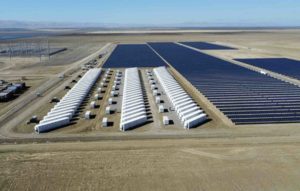Clean energy policy in Europe continues to be in a flux, with most countries in the midst of implementing changes. Last week, Greece approved a renewable energy bill to introduce net metering as well as impose a new levy on electricity producers.
Net metering, which allows credits for households passing on surplus solar or wind power they generate back to the grid, is a “positive, following months of catastrophic uncertainty,” said Stelios Spsomas, a policy adviser for the Hellenic Association of Photovoltaic Companies.
Greece is among a handful of countries that imposed retroactive changes in policy. In the past year, it has sought to control the growth of the renewable energy industry by cutting incentives, taxing generation and halting permits for new facilities. The remuneration for net metering and the levy, which will fund a cut in power prices for energy-intensive industries, are yet to be quantified.
Spain, another country that implemented retroactive changes to clean energy policy, is also moving forward with an energy policy overhaul to limit consumer cost increases while reducing the EUR 26bn “tariff deficit”, or the gap between the production costs and revenue. The deficit for 2013 is expected to be EUR 4.5bn, reflecting the cost of government subsidies to keep consumer prices down.
Poland is replacing its renewable energy certificate scheme with reverse auctions, the UK is transitioning from the Renewables Obligation to a contract-for-difference feed-in tariff as part of its Electricity Market Reform, while Norway’s parliament is set to consider a hike in its carbon tax. Under a budget proposal to be implemented on 1 January 2014, the carbon tax on oil and natural gas would rise by NOK 100/t (USD 17/t) to about NOK 330/t (USD 56/t), according to Bloomberg BNA. The carbon tax rate for domestic aviation fuel will increase by about NOK 50/t.
In Asia, China announced its intention to expand the capacity of solar projects connected to the distribution grid. The target for these projects is 20GW by 2015, the head of the National Energy Administration said in a speech posted on the agency’s website last week.
South Korea asked its industries to cut greenhouse gas emissions to 2.7% below the level expected in 2014 under a business-as-usual scenario. In 2009, the government pledged a 30% reduction in emissions levels by 2020.
In New Zealand, the government secured commitments of NZD 1.9bn (USD 1.6bn) for the divestment of a 49% stake in the country’s biggest power company, Meridian Energy. Investors will pay NZD 1-a-share upfront and the balance NZD 0.50 after 18 months, for the hydro and wind power company.
The other financing news of the week came from UK where Foresight Group, a London-based asset manager, raised GBP 150m in an initial public offering for a fund focusing on solar power investments. The proceeds, which were lower than the GBP 200-250m targeted, will be used to buy eight UK projects with a combined capacity of over 145MW.
Also in the UK, renewable power supplier Good Energy Group closed subscriptions for a 7.25%-coupon corporate bond sale ahead of the 13 November deadline, after demand exceeded its GBP 15m limit for the four-year debt.
In the US, there is hope that construction of the country’s first offshore wind project, proposed to be built by Cape Wind Associates, could begin before the end of the year and qualify the plant for the federal Investment Tax Credit. The company expects to resolve the last two legal appeals against the 468MW project, after winning the 13 previous challenges, said vice president Dennis Duffy. The USD 2.6bn project has the backing of PensionDanmark, which committed USD 200m in June.
Eight states in the US also signed on to a new goal of 3.3m zero-emission vehicles by 2025. The eight-state coalition includes California (which has a 1.5m vehicle target), New York, Massachusetts, Oregon, Vermont, Maryland, Connecticut and Rhode Island. Sales of plug-in hybrids and battery-only vehicles in the US totalled about 67,000 this year through September, 29% more than the sales in all of 2012.
For those tracking carbon and climate change negotiations, there are two important dates next month: on 8 November, Lithuania – which holds the EU presidency – plans to seek a mandate to negotiate backloading at a meeting of ambassadors from member states to be held in Brussels, and the next session of the Conference of the Parties (COP 19) will be held in Poland over 11-22 November.
EU carbon prices surged on optimism over backloading deal
European Union Allowances (EUAs) for December 2013 finished the week 2.3% below the previous Friday, despite bouncing back from the weak trading earlier in the week as EU governments looked due to decide on 8 November on a mandate to start talks with the bloc’s Parliament about an emergency fix for the region’s emissions market. EUAs for delivery in December ended last Friday’s session at EUR 5.01/t on the ICE Futures Europe exchange in London, compared with EUR 5.13/t at the close of the previous week. Front-year permits tumbled earlier in the week to a low of EUR 4.45/t on Tuesday. Permit prices were depressed over the first four days of trading by drawn-out German coalition talks, which are expected to last until the end of the year. German power for delivery in 2014 ended Friday’s session at EUR 37.90/MWh, a 0.5% decrease on the previous week’s close of EUR 38.10/MWh. UN Certified Emission Reduction credits for December 2013 ended the week unchanged from the previous week’s close at EUR 0.53/t.
This Clean Energy Week in Review was originally published by Bloomberg New Energy Finance. Republished here with permission








